24+ Sample Non Profit Meeting Minutes
-
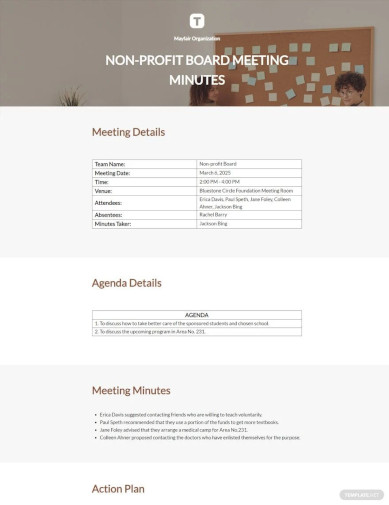
Nonprofit Board Meeting Minutes
download now -
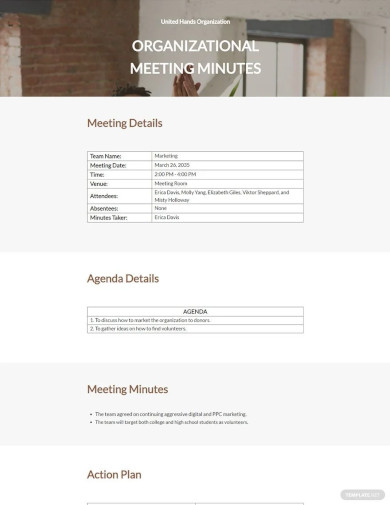
Nonprofit organizational Meeting Minutes
download now -
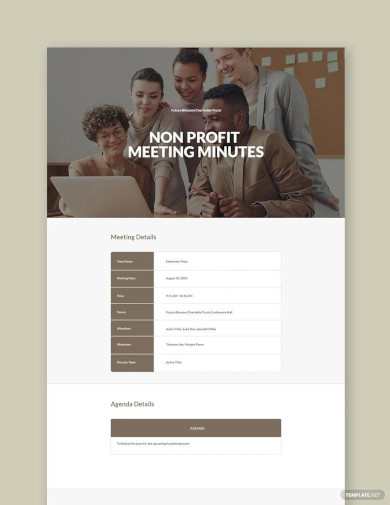
Nonprofit Staff Meeting Minutes
download now -
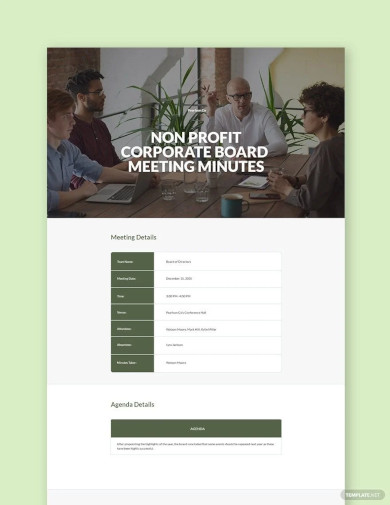
Nonprofit Corporate Meeting Minutes
download now -
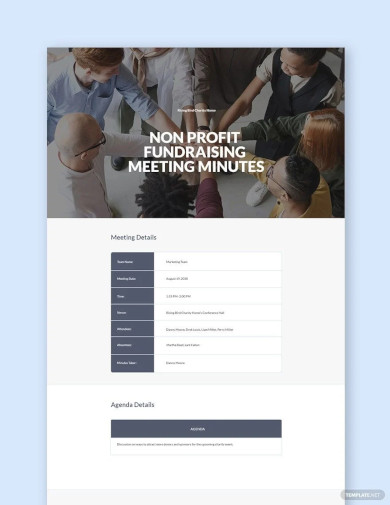
Nonprofit Fundraising Meeting Minutes
download now -
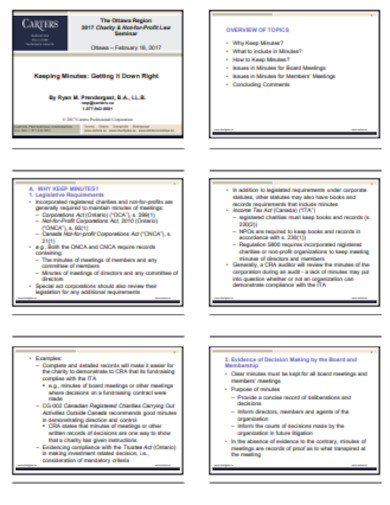
Nonprofit Charity Meeting Minutes
download now -
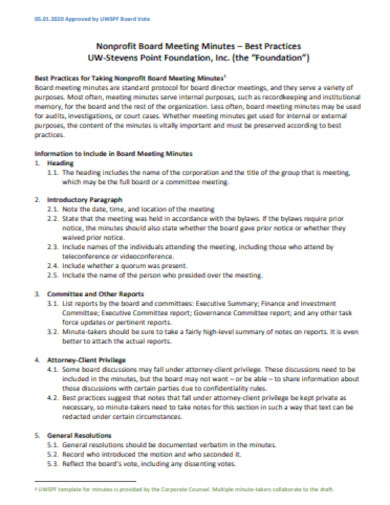
Simple Nonprofit Meeting Minutes
download now -
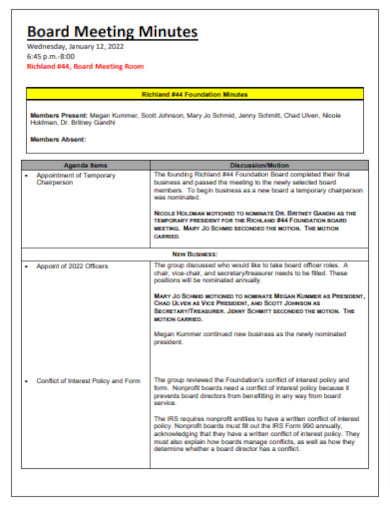
School Board Nonprofit Meeting Minutes
download now -
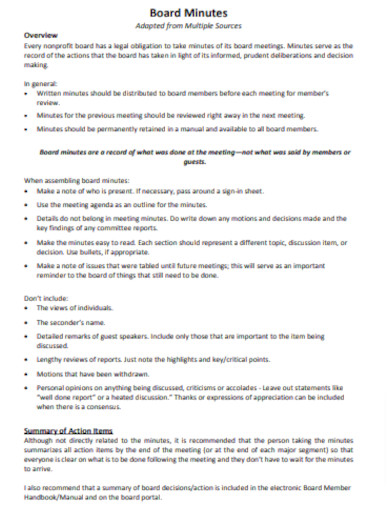
Editable Nonprofit Meeting Minutes
download now -
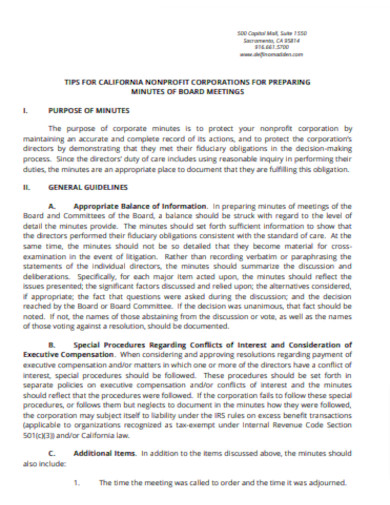
Nonprofit Corporation Meeting Minutes
download now -
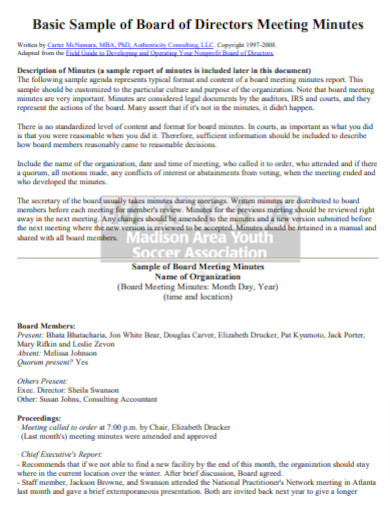
Nonprofit Board of Directors Meeting Minutes
download now -
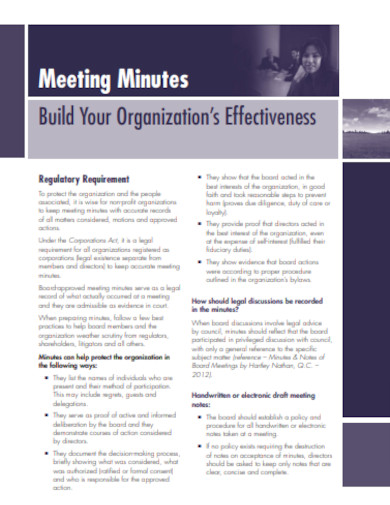
Printable Nonprofit Meeting Minutes
download now -
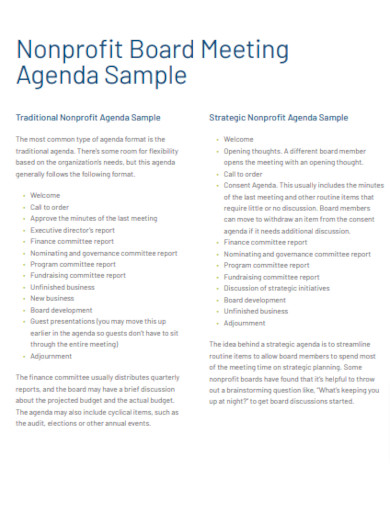
Nonprofit Agenda Meeting Minutes
download now -
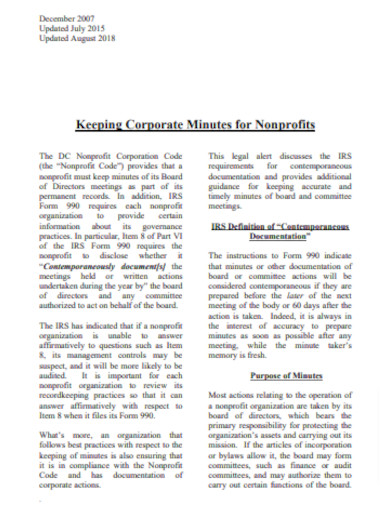
Corporate Nonprofit Meeting Minutes
download now -
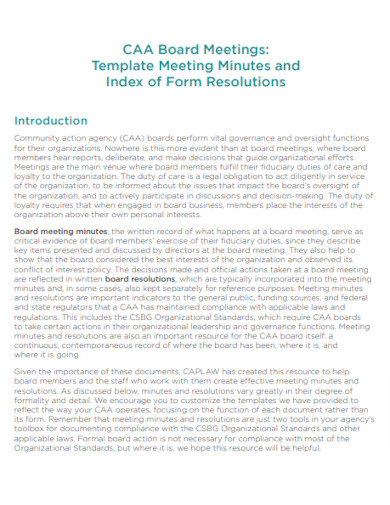
Sample Nonprofit Meeting Minutes
download now -
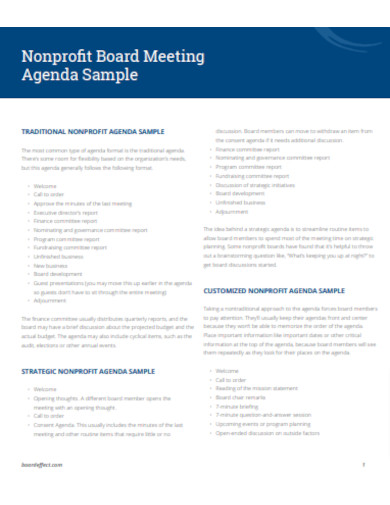
Traditional Nonprofit Meeting Minutes
download now -
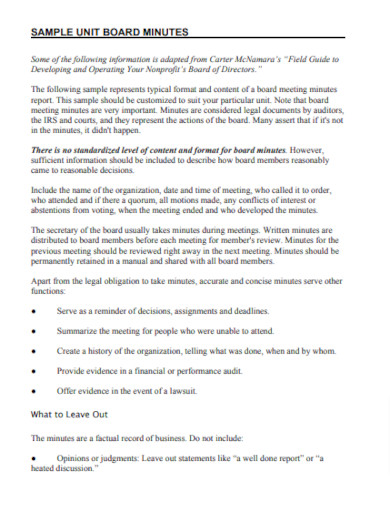
Basic Nonprofit Meeting Minutes
download now -
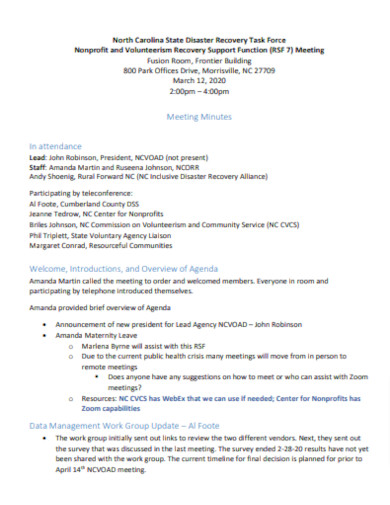
Nonprofit Meeting Minutes Outline
download now -
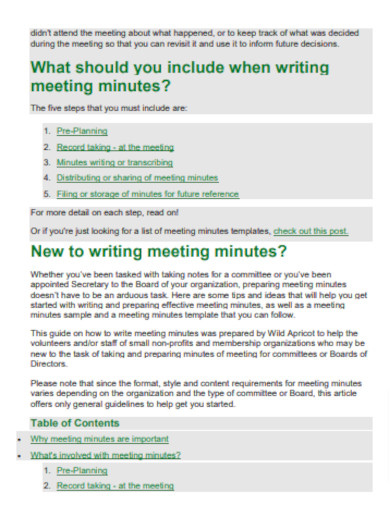
Nonprofit Committee Meeting Minutes
download now -
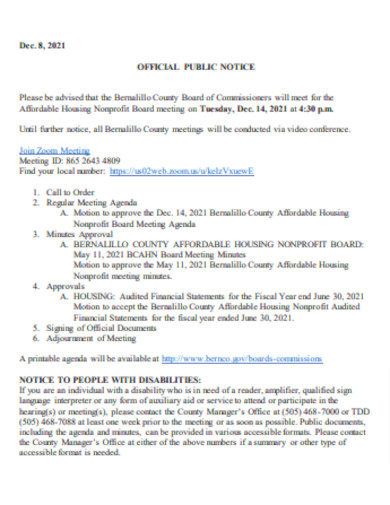
Nonprofit Housing Meeting Minutes
download now -
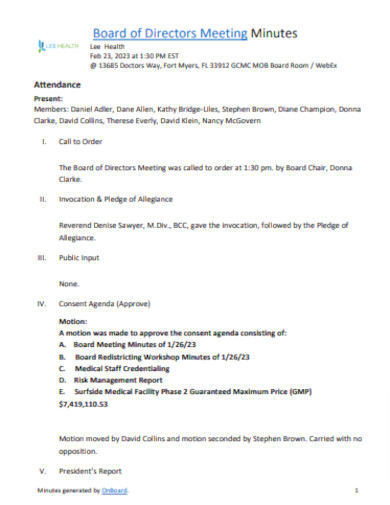
Nonprofit Meeting Minutes Layout
download now -
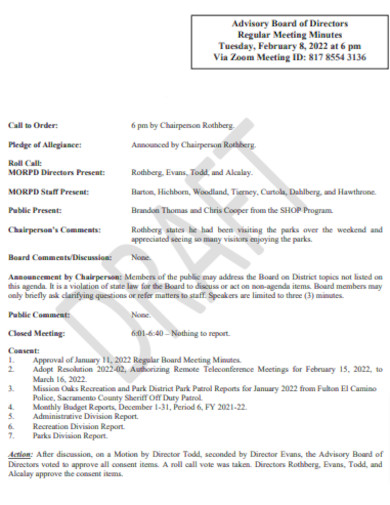
Nonprofit Meeting Minutes in PDF
download now -
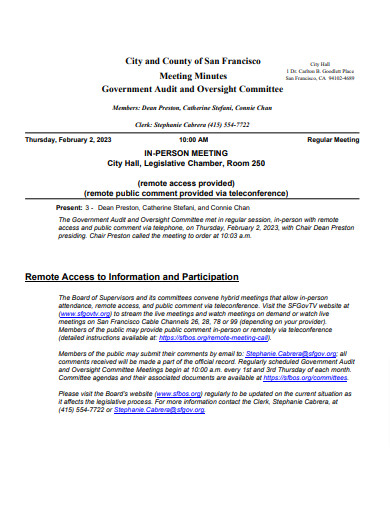
Nonprofit Meeting Minutes Format
download now -
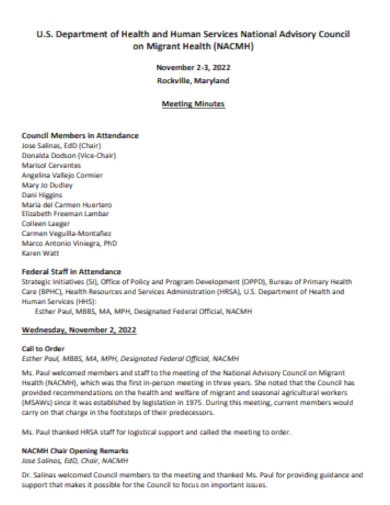
Nonprofit Annual Meeting Minutes
download now -
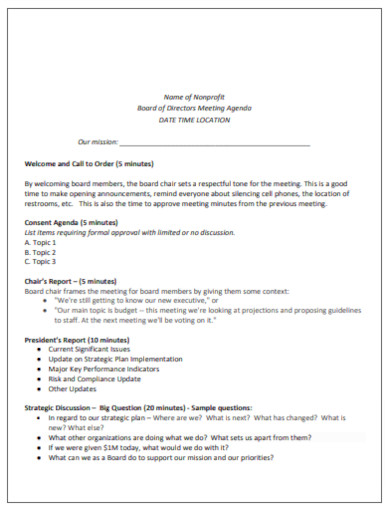
Nonprofit Meeting Minutes Agenda
download now
FREE Non Profit Meeting Minutes s to Download
24+ Sample Non Profit Meeting Minutes
Key Components of Non-profit Meeting Minutes
Style and Format
Why Are They Crucial for Non-profits?
Best Practices for Crafting Non-profit Meeting Minutes
FAQ’S
How long should non-profits retain meeting minutes?
Can anyone access the meeting minutes of a non-profit?
What if there’s a disagreement about the content of the minutes?
How do non-profits ensure the confidentiality of sensitive information in minutes?
Can minutes be revised after approval?
Is it necessary to record dissenting opinions in the minutes?
Key Components of Non-profit Meeting Minutes
Date, Time, and Location
These basic details offer context, ensuring clarity for anyone reviewing the minutes.
Attendees and Absentees
A list provides insight into the quorum and participation.
Previous Meeting Recap
Ensures continuity and addresses pending matters.
Agenda Items and Discussions
This is the crux of minutes, detailing topics discussed and diverse viewpoints presented.
Decisions Made
Clear articulation of resolutions or actions ensures accountability.
Votes and Resolutions
Records decisions and any dissenting views.
Follow-up Items
Lists responsibilities, deadlines, and action items, ensuring progress.
Style and Format
Choosing a Consistent Style: Consistency aids in clarity, so a standardized style should be maintained.
The Balance between Detail and Brevity: While detail is essential, excessive verbosity can dilute the primary points. Striking a balance is key.
Why Are They Crucial for Non-profits?
Transparency and Trust
Stakeholders, especially donors, need assurance that the organization is acting in line with its mission and using resources wisely. Minutes provide a transparent view of decision-making processes.
Legal Requirement
Depending on jurisdiction and regulatory norms, non-profits might be legally obligated to maintain meticulous records of their board and committee meetings.
Historical Record
For future references or for new members to understand past decisions, minutes serve as an invaluable resource.
Best Practices for Crafting Non-profit Meeting Minutes
Objectivity
Document proceedings without personal bias or interpretation. The minutes should be an impartial reflection of the meeting.
Brevity and Clarity
While every pertinent detail should be captured, verbosity should be avoided. Clear, concise sentences ensure that the minutes remain accessible to all readers.
Consistency
Adopt a standard format and stick to it. This ensures that stakeholders know what to expect every time they peruse the minutes.
Confidentiality
Some discussions may be sensitive. Understand what should be documented in detail and what might need more generalized wording to protect confidentiality.
FAQ’S
How long should non-profits retain meeting minutes?
While specific regulations might vary based on jurisdiction, it’s a best practice for non-profits to retain meeting minutes permanently. They act as an official record and can be critical for historical and legal purposes.
Can anyone access the meeting minutes of a non-profit?
It depends on the organization’s policies and local regulations. Some minutes, especially for publicly-funded non-profits, might be accessible to the public, while others, particularly those dealing with sensitive information, may be restricted.
What if there’s a disagreement about the content of the minutes?
If a member disagrees with the content during the approval process, the matter is usually discussed. If a consensus is reached, the minutes can be amended accordingly before final approval.
How do non-profits ensure the confidentiality of sensitive information in minutes?
Sensitive matters can be recorded in a generalized manner to avoid disclosing confidential details. Additionally, secure storage, restricted access, and digital safeguards can protect the minutes from unauthorized access.
Can minutes be revised after approval?
Revisions after approval are uncommon and, typically, not advised. However, if there’s a significant error or omission discovered, it can be discussed in the next meeting, and an amendment can be made, which is then documented in the minutes of that subsequent meeting.
Is it necessary to record dissenting opinions in the minutes?
Yes. Recording dissenting opinions or votes ensures transparency and provides a comprehensive view of the board’s deliberations. It also respects the views of all members, even if they’re in the minority.
For non-profits, every decision has a ripple effect, impacting lives and making a difference. Thus, it is crucial to meticulously document these decisions and the discussions preceding them. Meeting minutes, far from being a mere administrative duty, serve as the records of a non-profit’s progress, ensuring that each action taken aligns with its mission and vision.
